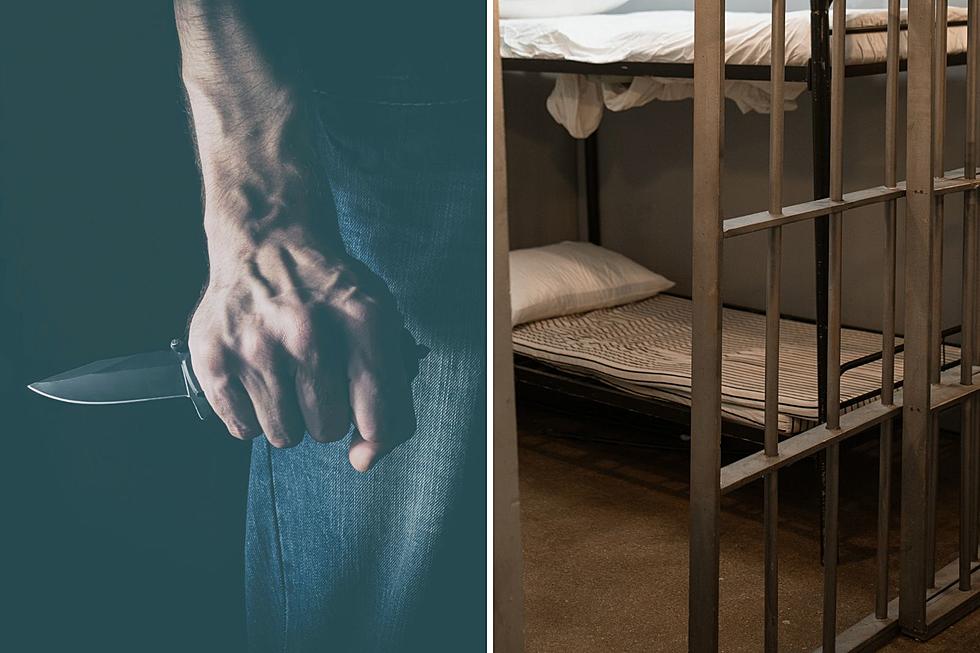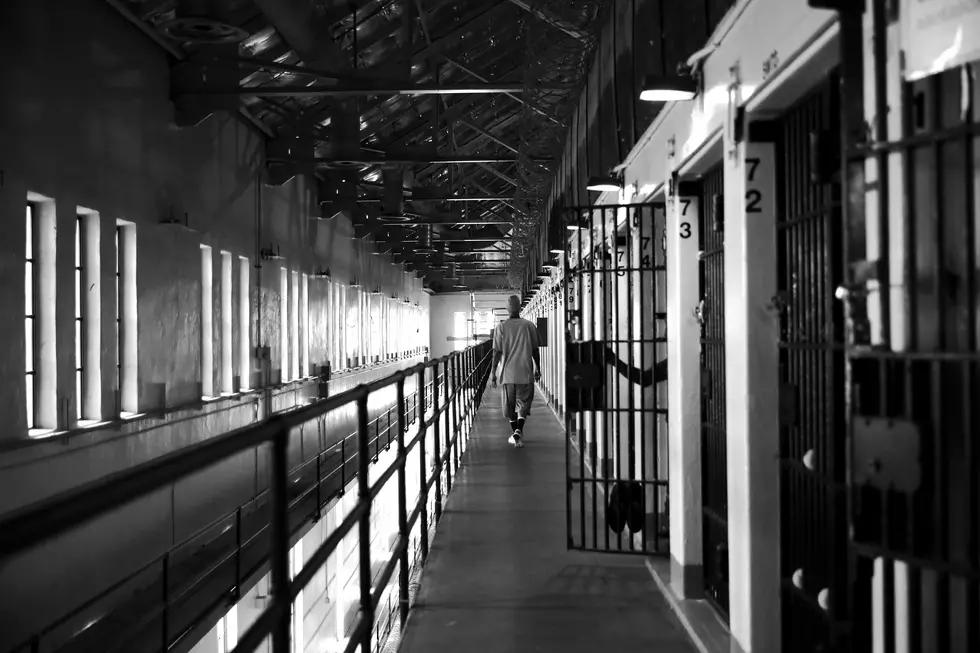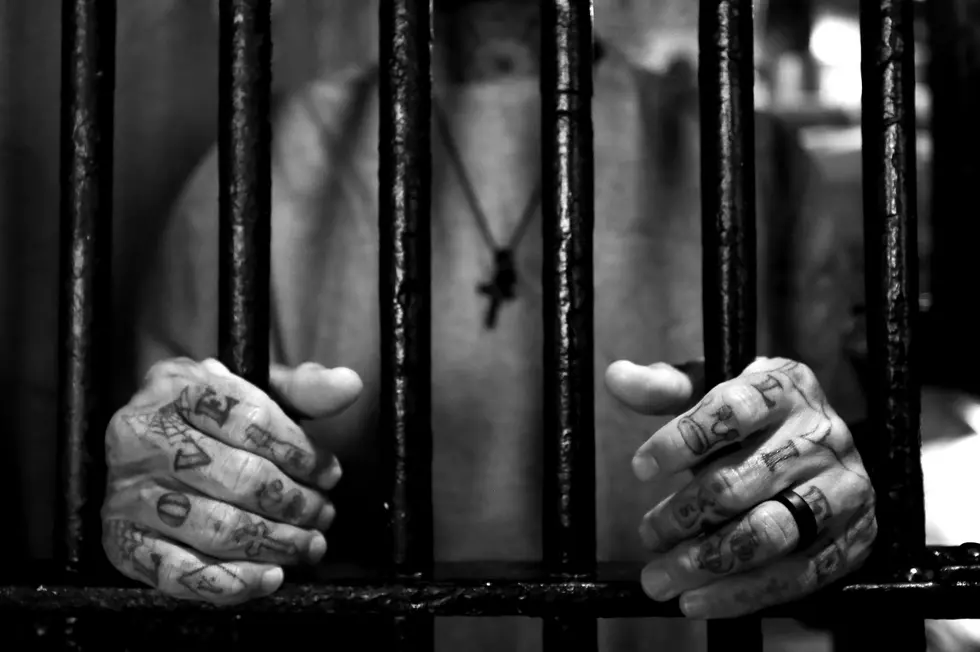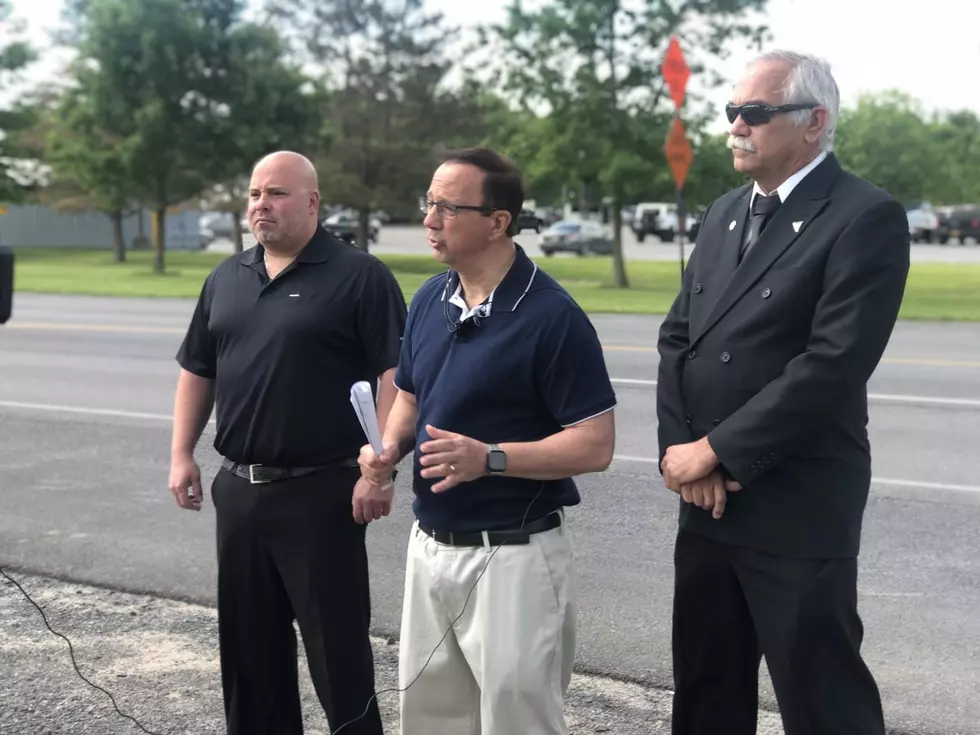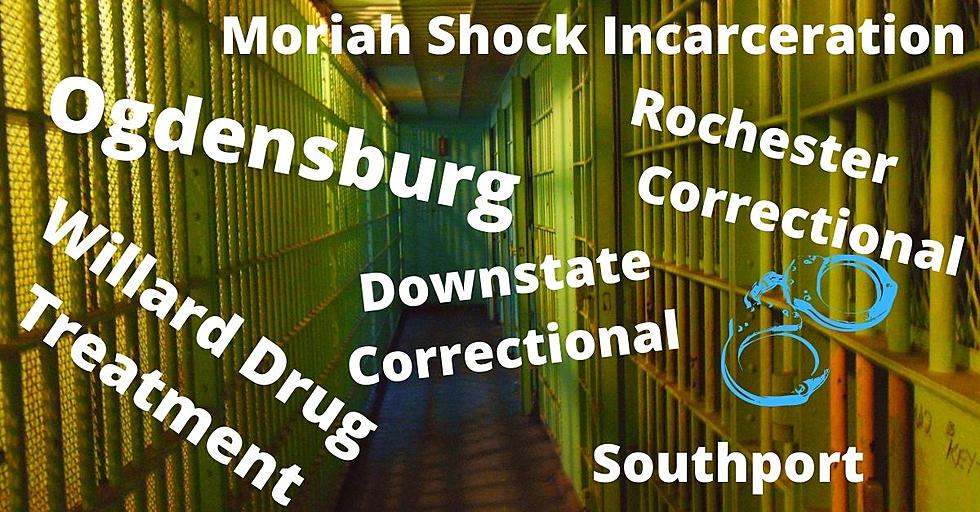
NY Corrections Officer Discusses Impact of 6 New Prison Closures
With six more prisons in New York State officially closing on Thursday, a Corrections Officer with 16-years experience admits it's getting harder and harder to recommend the job to new recruits or those looking to get into law enforcement.
Bryan Hluska is Central Region Vice-President for the New York State Correctional Officers Police Benevolent Association (NYSCOPBA) and says the reduced number of prisons creates problems not only inside the existing facilities, but also in communities across the state.
"A lot of this is being pushed through legislation [in Albany], and inmates are getting released back onto the street. They say: 'they're drug offenders and they're non-violent.' But, that's not really accurate," Hluska says. "They might be less violent, but I wouldn't call them non-violent," he explains. "And, as you can see, the closures don't resolve the issue of crime...just read the news."
The following NYS Department of Corrections and Community Supervision will close on Thursday:
- Ogdensburg Correctional
- Moriah Shock Incarceration
- Southport Correctional
- Rochester Correctional
- Willard Drug Treatment Campus
- Downstate Correctional Facility
Hluska says as crime increases on the streets, it's growing inside the prisons themselves.
"Inside, now what you have left is the worst of the worst," he said of the 18 prisons (including the 6 closing this week) that have shuttered in the last 11 years. "Since 2012, inmate attacks on guards are up almost 125-percent. It used to be you were worried about inmates fighting each other. Now, you got female officers getting their heads stomped during an attack."
"I used to recommend this job to people, when they'd ask, I'd tell them it was good pay, good benefits. But, in good conscience, it's really hard to recommend this job to anyone" Hluska said.
The following numbers were provided by Hluska:
- In 2012, there were 524 assaults on prison staff reported, with a statewide inmate population of 55,000
- In 2021, there were 1,173 assaults on prison staff reported, with a statewide inmate population of approximately 30,000
The issue faced by current C-O's is multi-fold, he continued. Not only do they have to deal with attacks, but officers frequently being mandated to work overtime to cover for staff shortages, or for other sick or injured guards, takes its toll, too, he said.
The resignations come in weekly, he says, and even among younger officers.
''Some of them come in after they graduate the academy to become a correctional officer. They do some on-the-job-training, then almost immediately they get mandated overtime again and again and again. They say: 'You know what, the money's good, but I'm never gonna spend anytime with my family - No thanks.' And, they're gone," Hluska says.
What will happen to the prisoners and CO's at the six facilities closing?
Hluska says the inmates get moved to remaining prisons based on classification - medium, maximum and minimum security. The prison guards, however, face a less certain future.
While he says the closures will not mean any staff layoffs, some correctional officers will now face an extended commute to and from work.
"Senior guys can apply for openings [at facilities] closer to home. Younger ones, some of them are gonna have to travel 3 or 4 hours to work now. How long do you think that's gonna last before some of them say: 'Forget this, I'm done.' "
Some Major US Companies Pulling Out Of Russia Over Ukraine
Ukraine and the World's Response to Russia's Attack - February 24, 2022 to Present
Celebrities React to the Russian-Ukraine Crisis
5 Potent Weapons You Can Legally Carry for Self Defense in New York
50 Most Popular Chain Restaurants in America
Every Batman Movie Ranked From Worst to Best
More From WIBX 950
